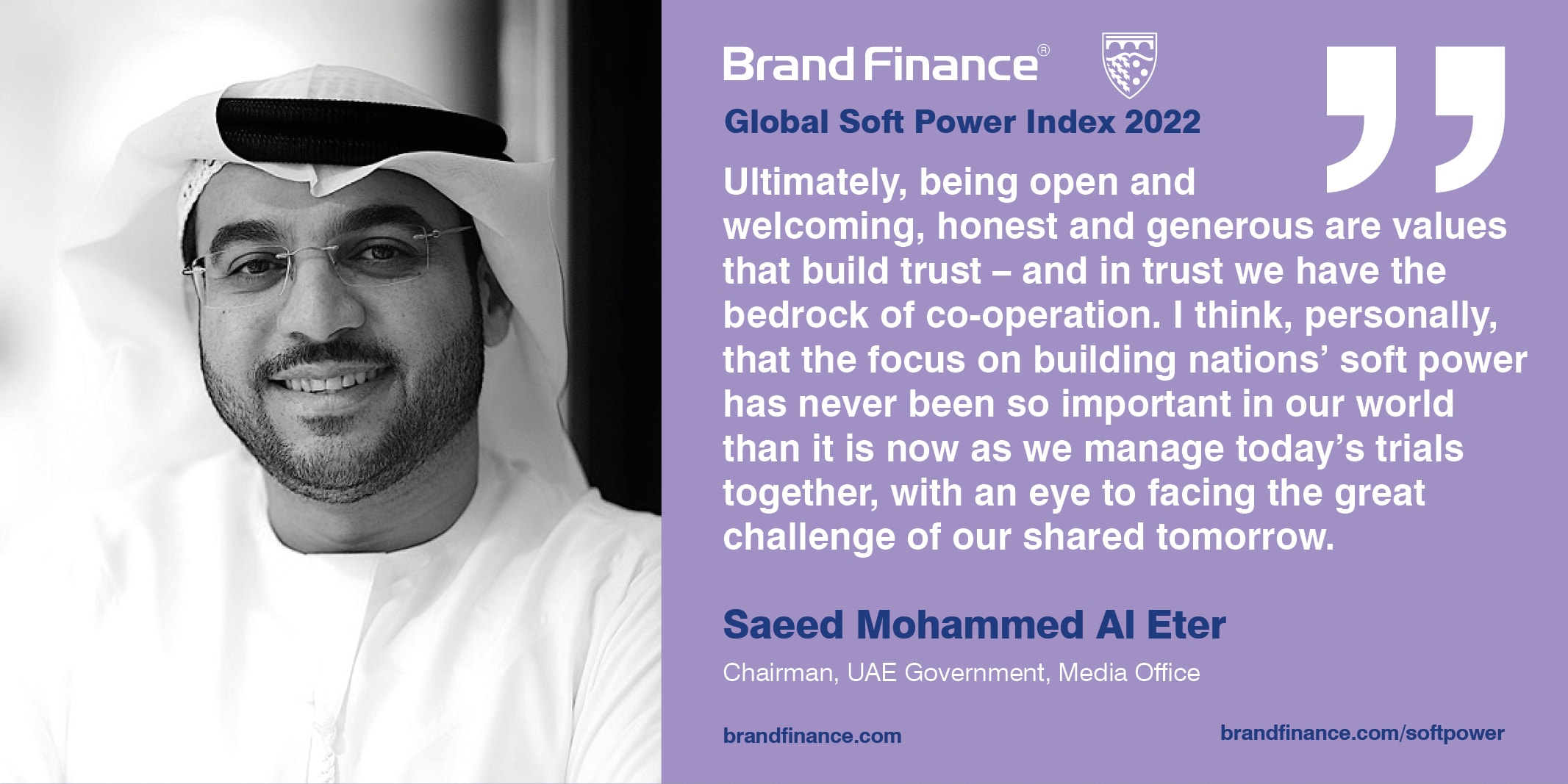This article was originally published in the Global Soft Power Index 2022.

As we emerge from two years of pandemic, contemplating the idea of light at the end of the tunnel, it is perhaps worth taking stock of how our world has already changed – possibly in ways for the better.
Apart from adding the phrase ‘you’re on mute’ to our vocabulary, the pandemic has brought us new ways of doing things: the spectacle of businesses and indeed people ‘pivoting’. Old ways of creating value have given way to new ideas, new behaviours and ‘new normals’.
In all this transformation and disruption, what has changed in soft power? We have already encountered the spectacle of nations scrambling to provide the PPE that characterised the early period of the pandemic and then seen the emergence of ‘vaccine nationalism’, both in terms of nations protecting stocks of vaccine and jostling to ensure sufficient doses for their populations and in terms of national ‘ownership’ of successful vaccines. This apparent selfishness on the parts of governments has been balanced by open handed gestures. Donations of hospital beds, PPE and now millions of doses of vaccine have proven to be a powerful soft power tool in today’s world, when given freely.
It has not just been how nations have behaved in terms of their willingness to share resources, however, but how they have reacted to protect their own populations with policy.
New Zealand has certainly provided an example to all – assertive, effective national leadership in a time of crisis should not, and must not, be scared to call on people to accept limitations for the greater good. The idea, of course, that collective responsibility should limit personal freedoms is a dangerous one, taking us back to the spectre of hard-core communist or autocratic ideologies – and yet this is precisely what New Zealand, a country that punches way above its weight with its soft power, has done.
There is a lesson here that is, I believe, at the core of soft power in the post-COVID age. If a nation is admired, respected and trusted, people are more willing to accept its actions, to question them and seek answers and reason rather than instantly condemn them. Soft power in times like these buys us the benefit of the doubt. But it is not achieved through ‘messaging’, but through truly adhering to values that reflect and represent a nation and its people. Hard power, we know, is wielded at the cost of soft power.
Should the regard of others around the world influence our decisions when lives are at stake? If we value co-operation, collaboration and have internationalism high on our agendas, then clearly the answer is yes. If we have decided to focus inwards and take refuge in populism and hide behind exceptionalism, we can disregard ‘the other’ – and I do believe that the idea of ‘vaccine nationalism’ is rooted in this kind of thinking and, ultimately, damaging to a nation’s soft power.
By working internationally, by seeking dialogue and understanding (so important to soft power), we can confront the greatest of challenges. And it is my hope that the lessons we learn from the pandemic will be applied to humanity’s greatest challenge of all – far greater than COVID, far greater than even the most appalling conflict emerging into the consciousness of a world already reeling from the pandemic. It’s hard to keep focused on the long-term danger with our short-term concerns, but we mustn’t lose sight of the greatest challenge we all face – climate change.

I believe that turning our backs on selfishness and breaking down barriers, welcoming other philosophies, ideologies, faiths and approaches are all key to soft power. Ultimately, being open and welcoming, honest and generous are values that build trust – and in trust we have the bedrock of co-operation. I think, personally, that the focus on building nations’ soft power has never been so important in our world than it is now as we manage today’s trials together, with an eye to facing the great challenge of our shared tomorrow.

